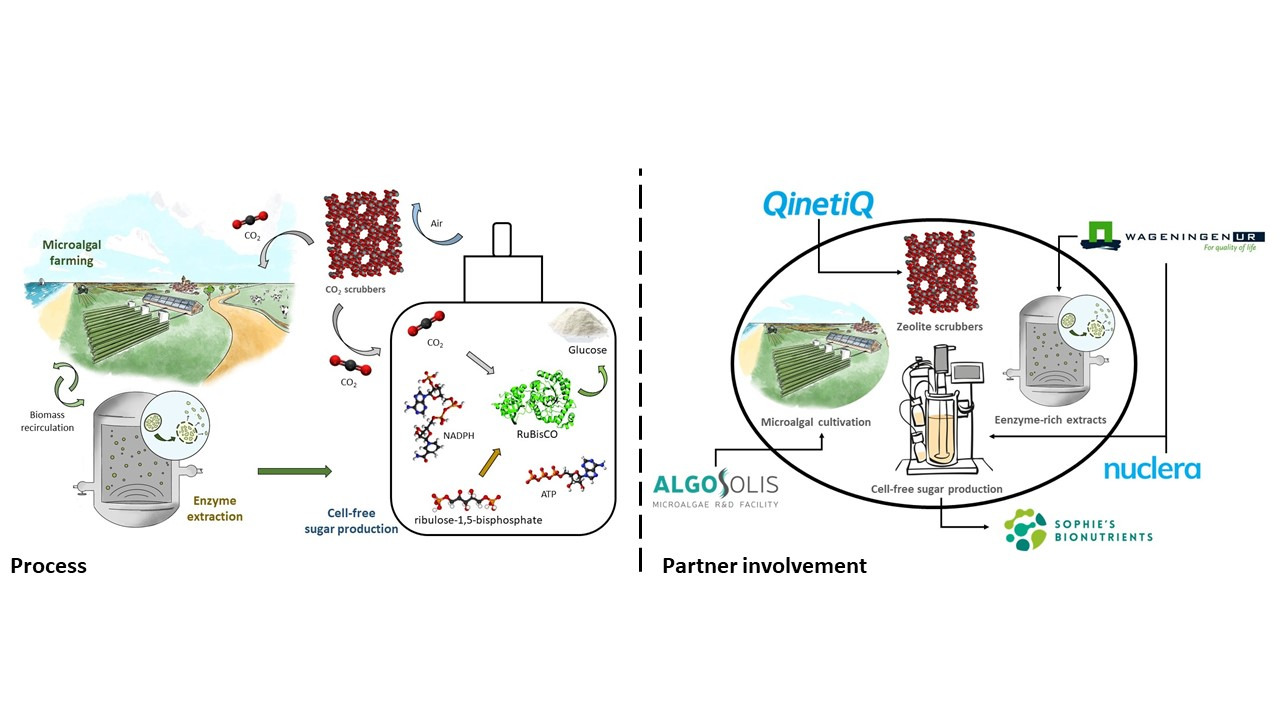Current food systems are causing a quarter of total carbon emissions and represent the primary driver of biodiversity loss. These approaches need to be completely reconsidered to save what is left of the global biodiversity and reverse carbon emissions. Alternative food ingredients have been successfully produced using bacteria, yeast and microalgae. However, these microorganisms require sugars, organic acids or proteins, which are produced using conventional approaches, further contributing to the problem. Moreover, these microbial cells are limited by a number of factors such as availability of enzymatic substrates and competition over metabolic fluxes.
Thus, the project aims to develop an elegant way of bypassing these limitations while decarbonizing our society by directly converting carbon dioxide from the atmosphere into food ingredients using cell-free systems. More specifically, this will be achieved using zeolite carbon scrubbers which will provide microalgal enzymatic extracts rich in RuBisCO and ribulose-1,5-bisphosphate with concentrated CO2. The hypothesis is that these enzymes, which allow plants to convert CO2 into glucose during photosynthesis, will be several times more active having more substrate to their disposal and being freed from cellular regulation mechanisms. In order to achieve this, novel enzyme extraction and purification approaches based on deep eutectic solvents and acoustic fields will be employed to preserve the structural integrity of these enzymes as well as to provide an environment where their activity is promoted and maximized. Furthermore, the other cellular components such as lipids, pigments, starch and proteins will be recovered through a multiproduct biorefinery approach.
The novel insights provided by this project could provide a scalable and more sustainable source of novel food ingredients which could potentially replace current practices and help restore the climate and ecological balance on Earth.

